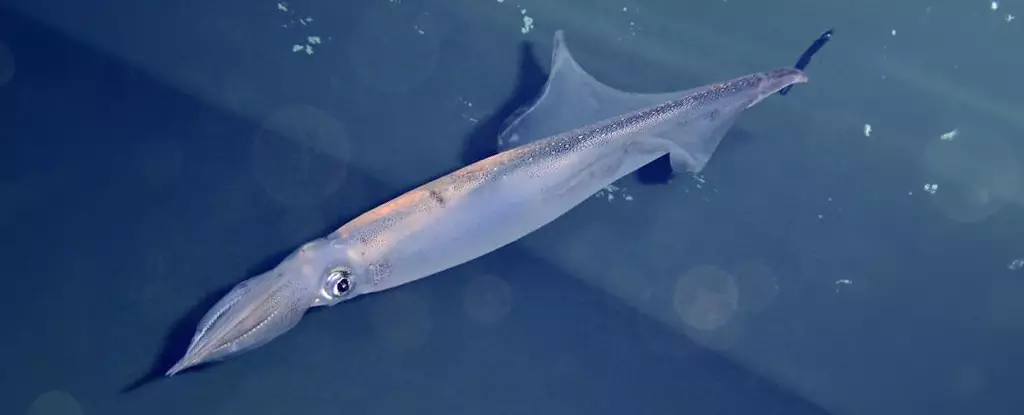When it comes to horoscopes and predictions based on celestial bodies, many scientifically minded individuals may dismiss them as pure superstition. However, a recent study from Japan sheds light on a fascinating correlation between the birth month of Japanese spear squid and their mating strategies. Marine biologists from the University of Tokyo discovered that male squid exhibit different reproductive tactics depending on the month they hatch, with some becoming fighters and others opting to be sneaky sneakers.
The phenomenon observed in these squid, known as the relative age effect, is reminiscent of the way children born earlier in the year tend to excel in sports due to having more time to develop their skills before selection. In the case of Japanese spear squid, those hatching early in the breeding season grow larger by mating time and become consorts, engaging in battles to impregnate females and guarding them during egg-laying. On the other hand, squid hatching later in the season tend to be smaller and take on the role of sneakers, depositing sperm covertly near the female’s eggs.
Until now, the ‘birthdate hypothesis’ has mainly been studied in teleost fish and humans, making this research on squid a novel addition to the field. By analyzing the behavior of male H. bleekeri, the researchers found that mating tactics are predetermined by birthdate, with no deviation from the trend even if physical growth doesn’t align with expectations. This discovery challenges the notion of mating behaviors being solely inherited, highlighting the complex interplay of genetics, environment, and biology.
The study’s findings extend beyond the realm of squid, suggesting that genetic variation stemming from alternative reproductive tactics can influence mating behaviors in various animal species. From birds to damselflies, the way individuals approach reproduction may be shaped by a combination of internal and external factors from birth. The influence of environmental conditions, such as food availability and temperature, on physical traits and mating strategies is evident in diverse organisms, underscoring the interconnectedness of nature.
While the study provides valuable insights into the mating behaviors of Japanese spear squid, there is still much to uncover regarding the impact of environmental factors on growth and reproduction. Despite similar growth rates in consorts and sneakers early in life, further research is needed to elucidate how environmental changes, such as marine heatwaves, can influence mature body size and mating tactics in squid. Understanding these intricate relationships is crucial for conservation efforts and sustainable management of marine resources.


Leave a Reply